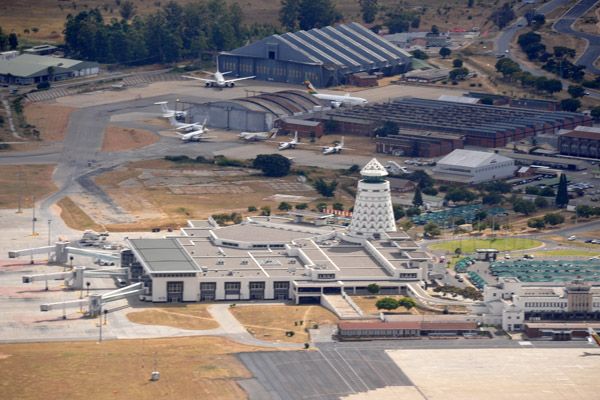Zim to revamp airports security
Security systems at Zimbabwe’s airports are set for a major upgrade over the next 24 months in a development that will see state-of-the-art scanners replacing physical searches among other key issues, according to Airports Company of Zimbabwe inaugural chief executive Tawanda Gusha.
Mr Gusha, a results driven executive, promised to transform and make the country’s airports compete favourably with regional leader, South Africa, in terms of service delivery.
He said the company wanted to put in place security systems that will exceed the International Civil Aviation Organisation minimum requirements as demonstrated by a recent assessment where the country scored 72 percent ahead of the regional average.
“We are going to put in place systems to make sure that we will not be subjecting passengers to removing shoes and belts. We will install body scanners in the not too distant future. All things being equal and if we get necessary approvals in the next 24 months we will be having different airports.
“We will make sure we will not be labelled as spots where illicit things take place, the smuggling, we have been reading in the papers, we want to change that narrative so that nothing passes our place undetected. We are going to increase our surveillance system and screening processes,” he said.
ACZ was created this year after the unbundling of the Civil Aviation Authority of Zimbabwe into an airports company that manages, establishes and acquires airports, while the authority is now an independent regulator. Accepted best international practice is to ensure that the regulator is not involved with operations.
Under its previous structure, CAAZ was both the player and the referee in that it had regulatory oversight, but also operated airports. Now it will only regulate the operations of the aviation industry, including those of the newly-established ACZ.
Said Mr Gusha: “Of course the big brothers are South Africa. We will be working with the Airports Company of South Africa to make sure that we will also tap not only into their business, but also into the knowledge and experience that has seen South Africa growing to that level of business that they have.
“OR Tambo is the biggest international airport in Africa and has been like that for a very long time. So we have got a lot to learn from them. We want to be second from South Africa in terms of business and service delivery.
“So we will be working closely with ACSA. We will be knocking on their doors and we have already started engagements and will continue with the engagements,” he said. The Second Republic is prioritising infrastructure development across various sectors, which is a primary means of sustainable economic development that also provides
conveniences associated with an upper middle class income economy as envisaged in Vision 2030 and National Development Strategy 1 (NDS1).
As such, Mr Gusha said his company wanted to make a difference in the aviation space in so far as service delivery was concerned.
“In the meantime we are in the process of building up our team. I want to leave a mark of excellence.
“I want our airports to be synonymous with excellence, particularly in terms of service delivery.
“We want to give our clients an experience when they come to the airport or when they pass through our airports.
“We want to try and automate as much as possible so that we reduce the amount of time a passenger is held at the airport, particularly going through the airport process, the clearance processes, whether you are coming in or you are going out. We want the process to be smooth and seamless. We are going to make sure that we work towards achieving that.
“But what is key is automation. Again it depends on the team that we are going to put in place. We want that difference to be noticed.”
Zimbabwe has eight commercial airports are: Robert Gabriel Mugabe International Airport in Harare, Joshua Mqabuko Nkomo International in Bulawayo, Buffalo Range and Masvingo airports in Masvingo, Hwange and Victoria Falls International in Matabeleland North, and Kariba and Charles Prince in Mashonaland West although Charles Prince is
right on the edge of Harare in Mount Hampden and tends to concentrate on the light aviation for the metropolitan area, leaving RGM International for the major passenger and cargo services.-The Herald








